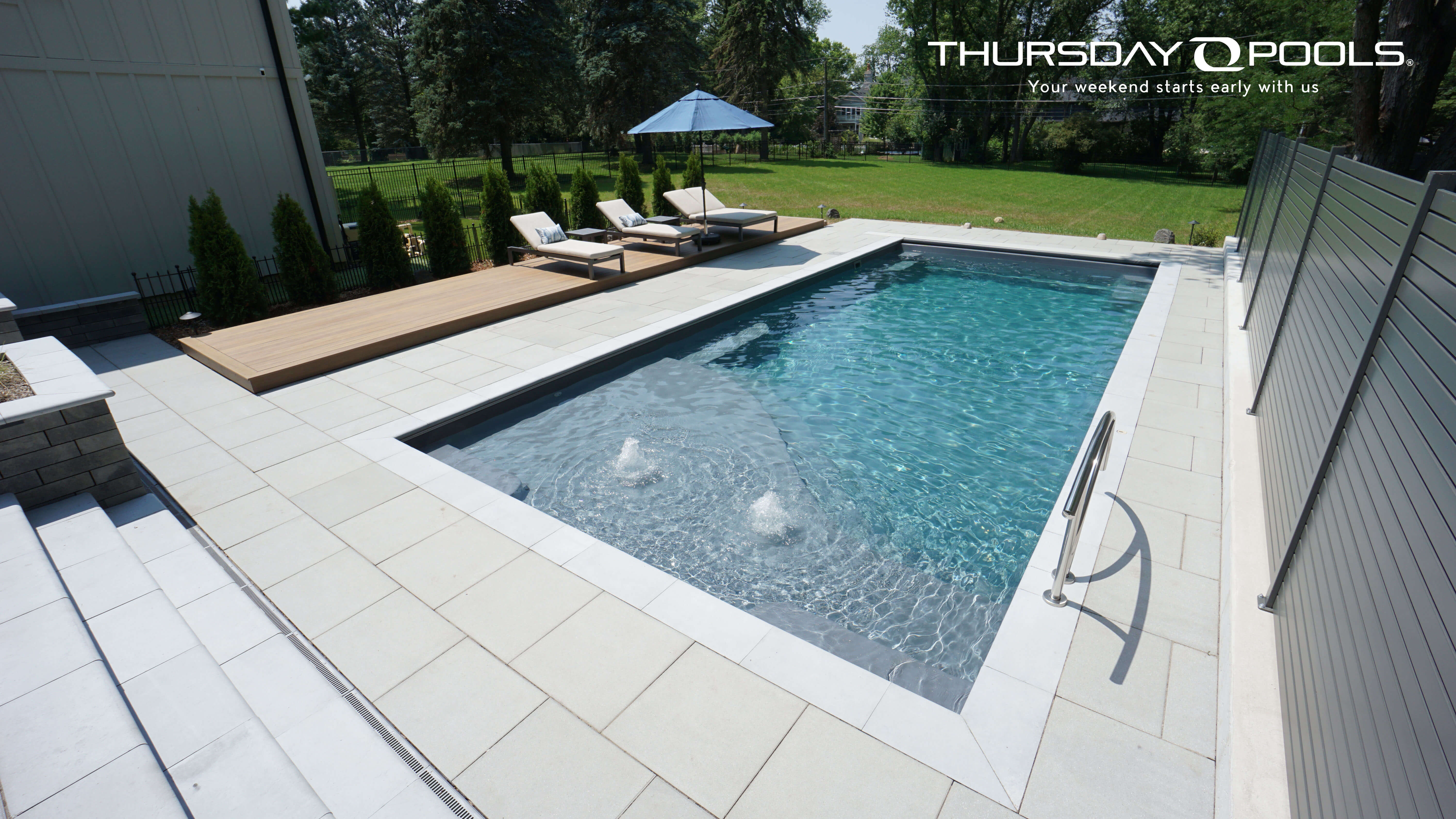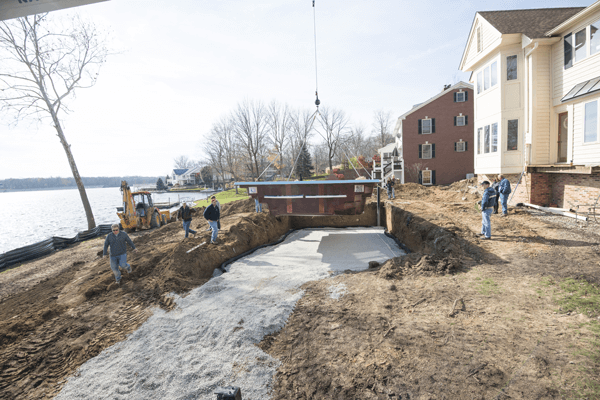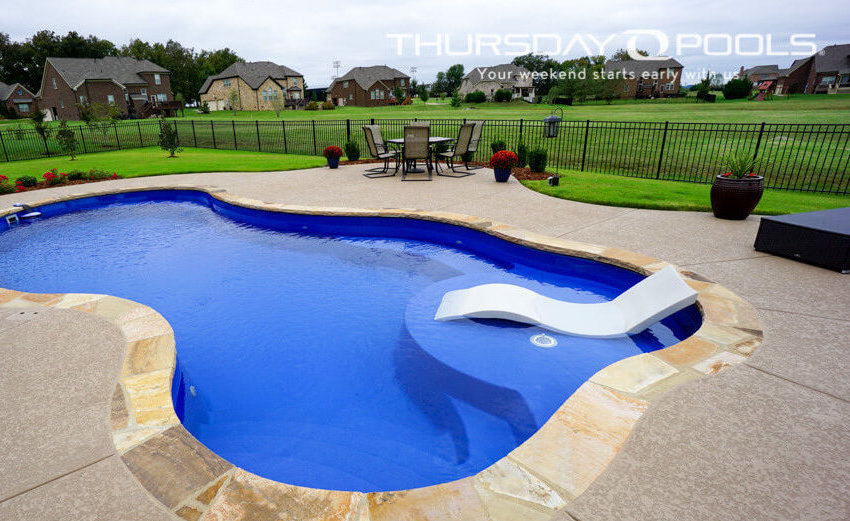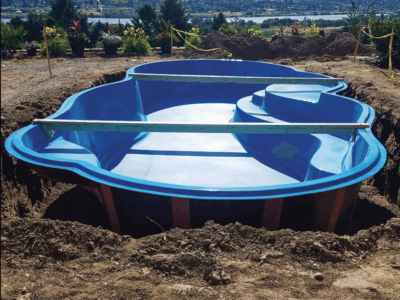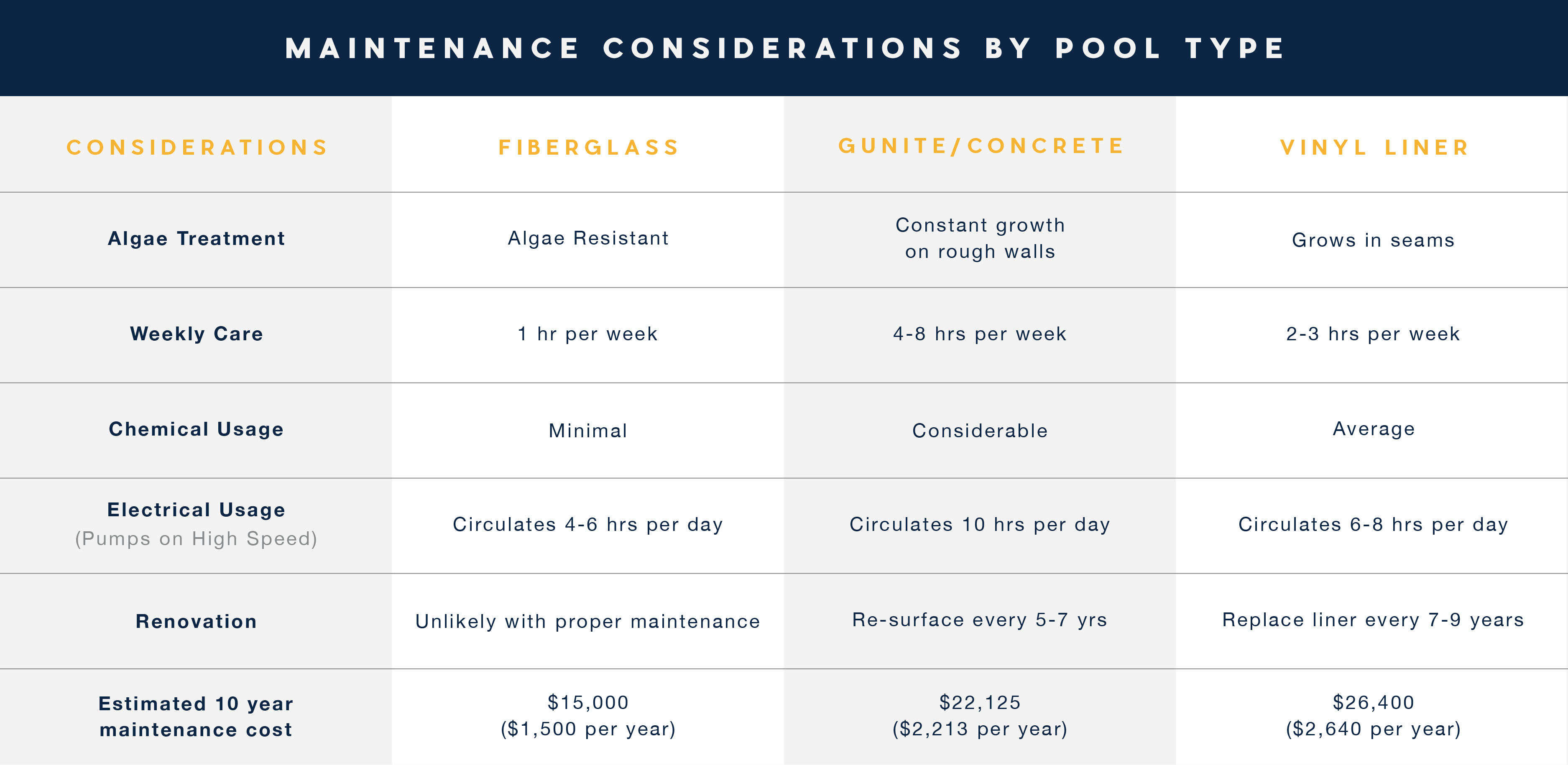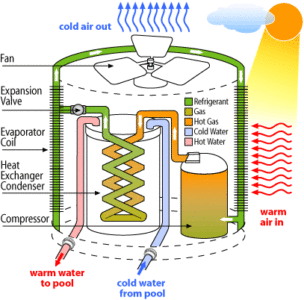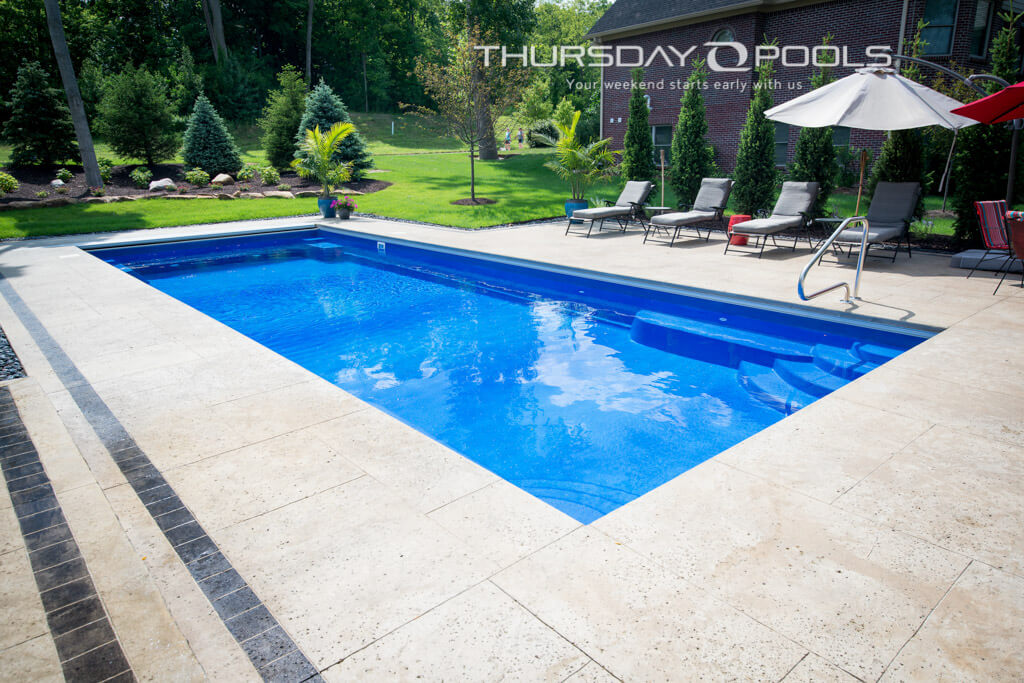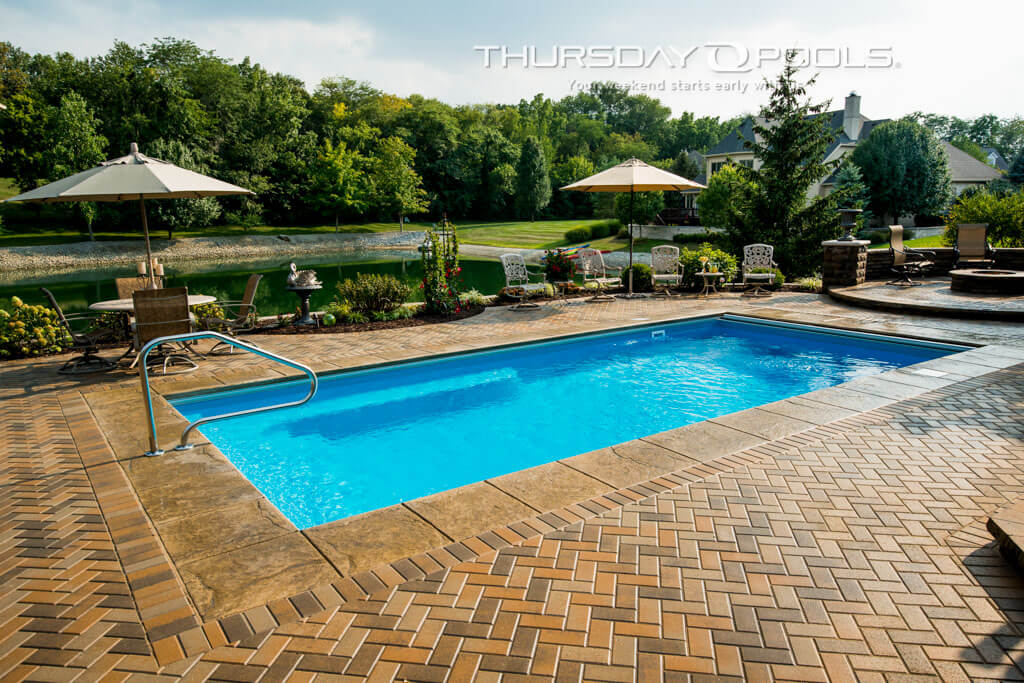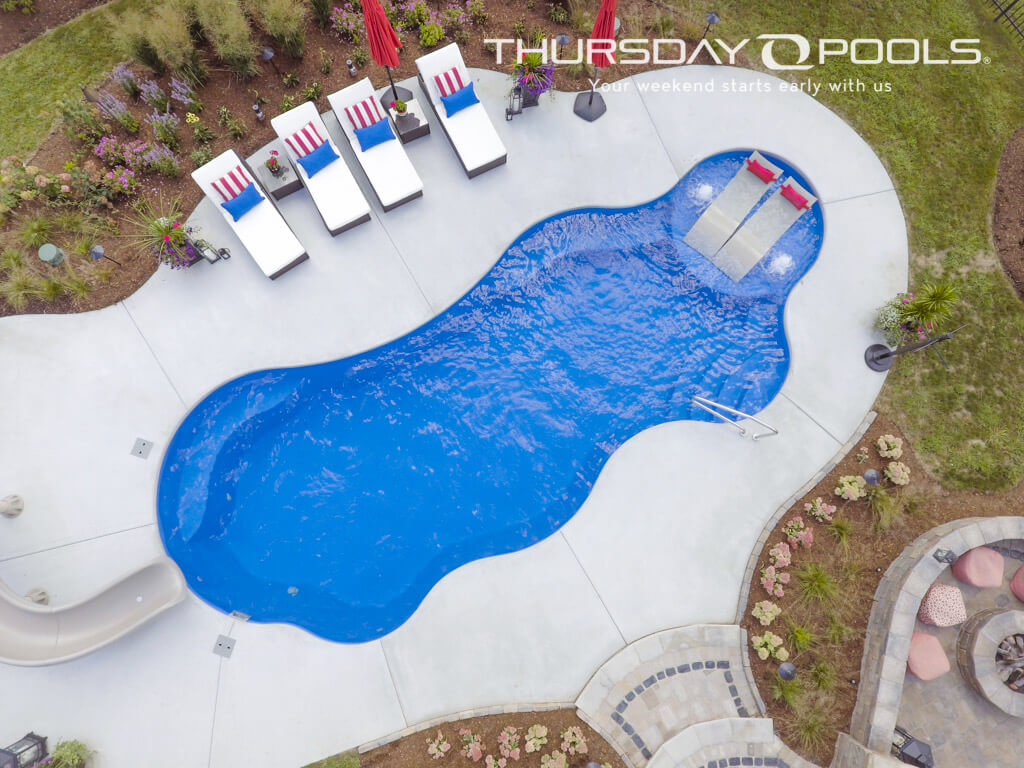An inground swimming pool can be a great addition to your home and lifestyle, but many homeowners may be wary of investing time and effort in the necessary maintenance responsibilities. Are you among those asking, “Are fiberglass pools easier to maintain?” The truth is that all pool types have their advantages and disadvantages, and all require regular maintenance.
Are Fiberglass Pools Easy to Maintain?
While they are not maintenance-free, fiberglass pools generally have lower maintenance demands as far as inground pools go. Because fiberglass pools come in one-piece shells, there are no seams where dirt and algae can collect. Their smooth surface is not porous, deterring the growth of algae and bacteria. Other pool types require resurfacing or liner replacements over time, whereas fiberglass can last for decades with simple, regular upkeep.
What Maintenance Does a Fiberglass Pool Need?
Fiberglass pools are relatively easy and inexpensive to keep in good shape. Fiberglass pools typically do not need resurfacing after so many years. With some basic maintenance, your fiberglass pool’s gel coat can last for a very long time.
Most regular fiberglass pool maintenance falls into one of three basic buckets: the filtration system equipment, the pool’s water chemistry, and manual cleaning tools.
Filtration: Your pool’s filtration system includes a filter, skimmer basket, and strainer pot. You’ll need to empty and clean all components at regular intervals.
Pool Water Chemistry: One of the most important regular maintenance tasks is to check your pool’s water chemistry and balance. Balanced water chemistry is important for avoiding corrosion, scaling, and staining while extending the life of your pool. We recommend weekly testing and referring to your pool’s owner’s manual for water chemistry level recommendations for your fiberglass pool shell.
Cleaning Tools: As with any swimming pool, some basic cleaning tasks, tools, and a little elbow grease can keep your fiberglass pool free from dirt and debris. Skim, brush, and vacuum the pool regularly to keep it clean. Use a skimmer net to catch leaves, grass, and other debris that land in your pool. Use a soft pool brush to gently clean any dirt that may collect on the bottom or sides of your pool. Be sure not to use any abrasive tools that could damage the gel coat surface.
What Are the Pros and Cons of Fiberglass Pools?
Fiberglass pools are among the most popular pool options available today, and for good reason. There are many benefits of fiberglass swimming pools, but they may not necessarily be the right choice for everyone.
What Are the Advantages of Fiberglass Pools?
Durability: One of the top reasons pool owners choose fiberglass is durability. Fiberglass is strong and flexible, making it especially resistant to structural damage. Fiberglass is so sturdy that it can withstand the elements for decades without resurfacing if following maintenance best practices.
Maintenance: Fiberglass swimming pools have lower maintenance demands compared to other types of pools, meaning lower maintenance costs and more time enjoying your pool.
Built-in Features: Depending on the design, fiberglass pool shells can come with built-in features such as tanning ledges, swim-outs, wraparound benches, beach entries, and more. Built-in, high-end features are often more expensive or difficult to integrate into other pool types.
Smooth, Safe Surface: Fiberglass pools have a smooth, non-skid surface that is attractive, safe, comfortable, and does not promote algae growth.
Quick Installation: Because fiberglass pools come from the manufacturing facility in one piece, most installations are faster and easier for builders than other inground pool types.
What Are the Disadvantages of Fiberglass Pools?
Cost: Fiberglass pools are an investment, and typically not the cheapest option for initial installation costs. However, choosing fiberglass can save you money on maintenance costs in the long run.
Limited Design Options: While you have plenty of sizes, shapes, and designs to choose from, fiberglass pools cannot receive the same heightened customization as concrete pools because they come from a prefabricated mold.
Potential Installation Issues: If pool builders inexperienced with fiberglass do not install and backfill the shell correctly, underlying issues can lead to damage and expensive repairs in the future. Make sure you hire local professionals with the necessary knowledge and experience for installing fiberglass pools.
How Long Do Fiberglass Pools Last?
While fiberglass pools can involve more upfront costs to install, they also tend to last a very long time. With proper care and upkeep, a fiberglass pool can last for 50 years or longer.
All pools require proper maintenance to maintain their original appearance. Most owners and industry professionals agree that fiberglass pools require less maintenance time and expenses than other pool types.
Looking for more information on the ease of fiberglass pool maintenance? Explore Thursday Pools’ Ultimate Fiberglass Pool Maintenance Guide for a thorough look at everything you need to know.
And if you’re ready for personalized advice, connect with a local independent Thursday Pools dealer near you.
Frequently Asked Questions About Fiberglass Pool Maintenance
-
What maintenance is required for a fiberglass pool?
Fiberglass pools need routine care. Weekly water testing and balancing, cleaning baskets, vacuuming or brushing with a soft nylon brush, and occasional filter maintenance will keep your pool in top shape.
-
Do fiberglass pools need regular maintenance repairs equivalent to resurfacing in gunite pools or liner replacements in vinyl liner pools?
No. Unlike gunite pools that need resurfacing or vinyl pools that need new liners, fiberglass pools maintain their finish for decades with simple routine care.
-
Do fiberglass pools cost more to maintain?
No. In fact, they usually cost less over time because they need fewer chemicals, less energy for cleaning and circulation, and don’t require resurfacing or liner replacements.
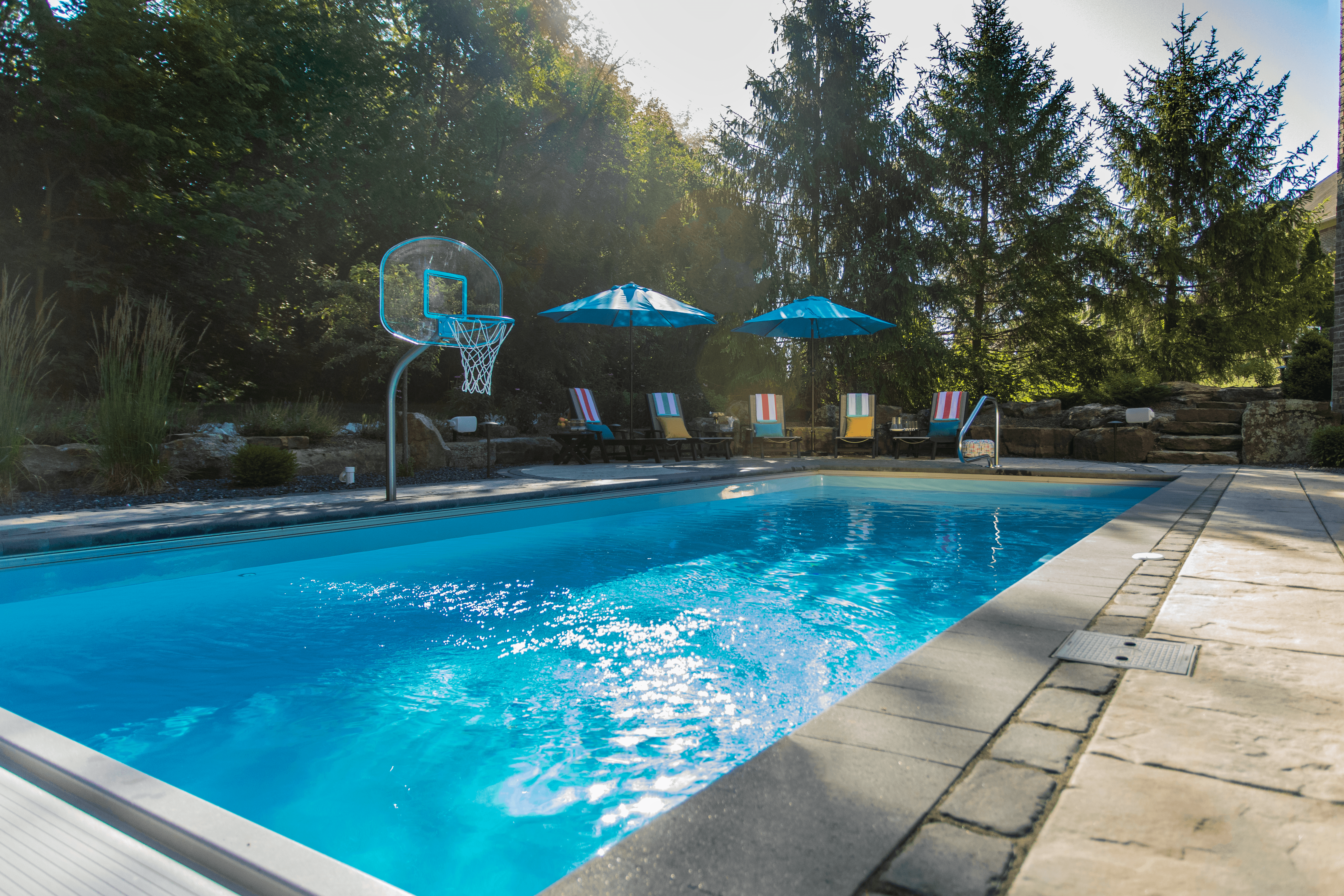
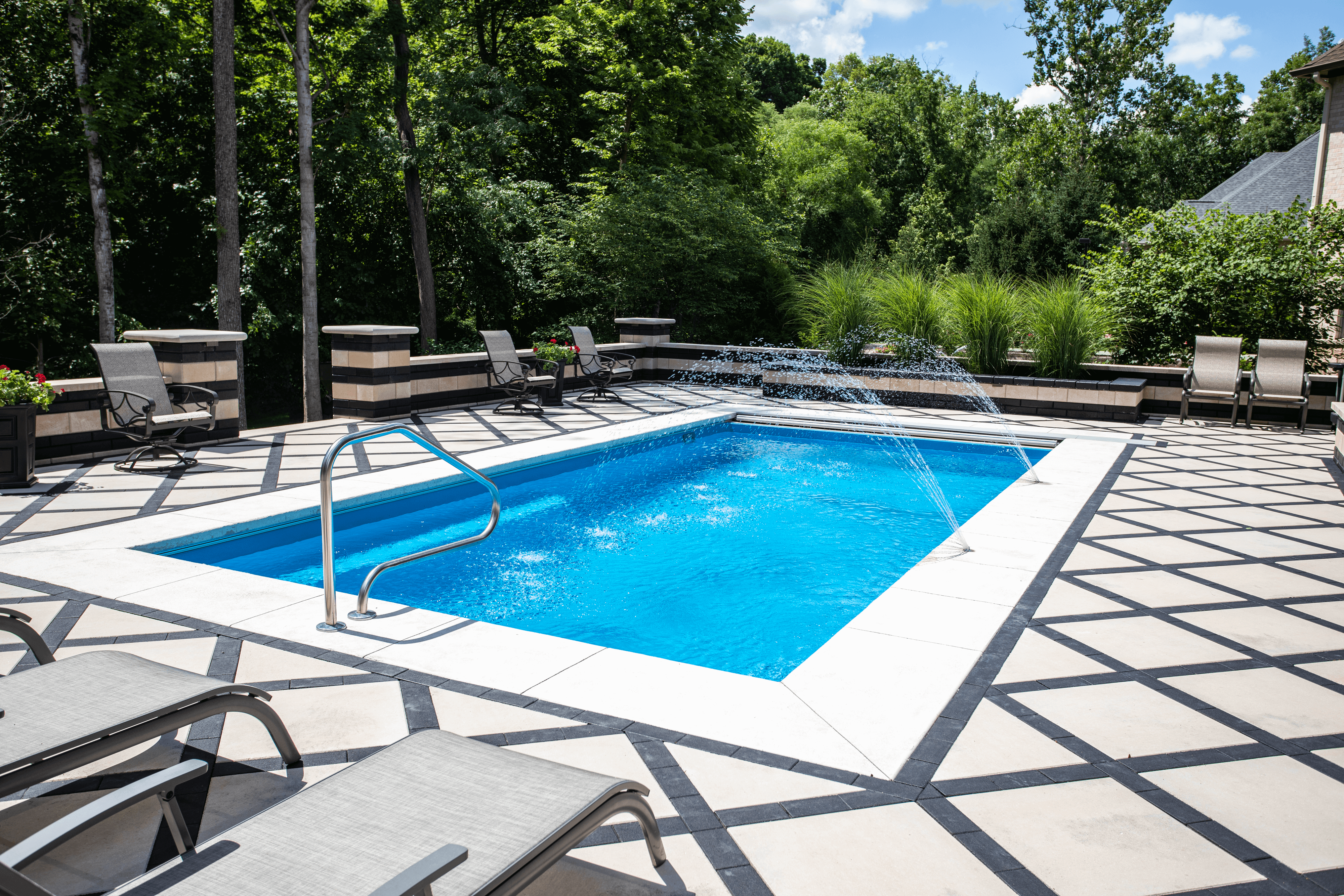
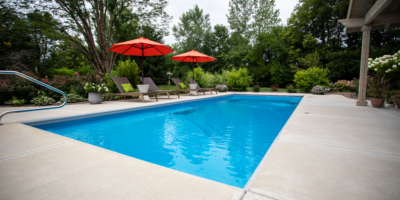

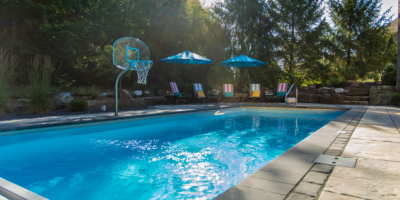
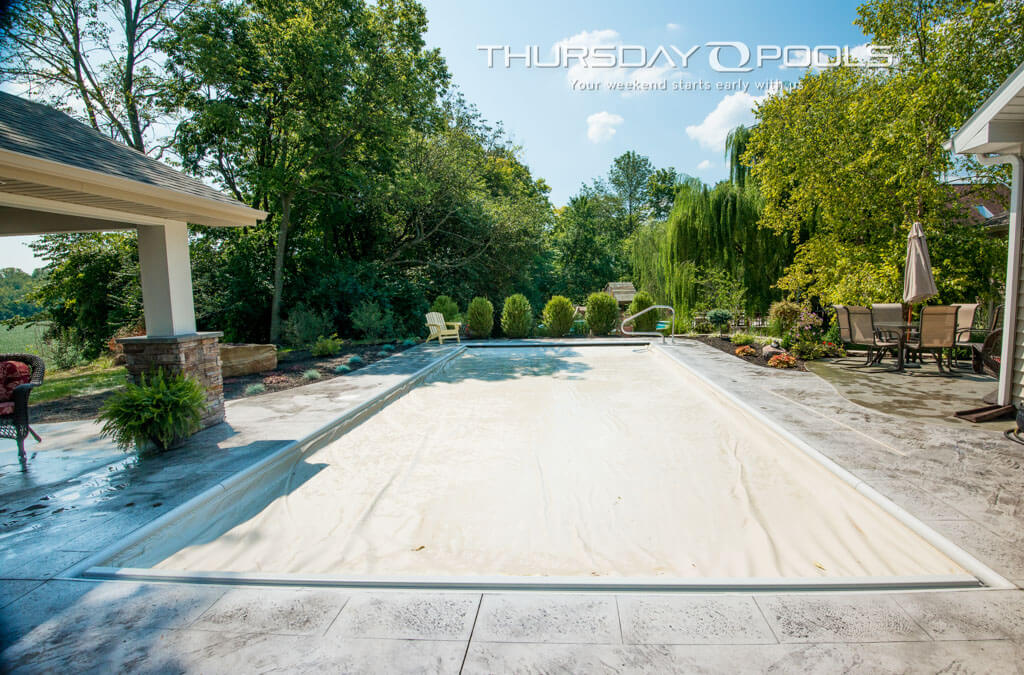
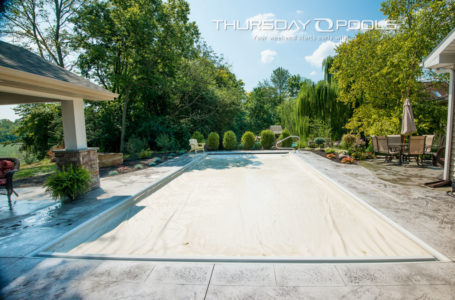 For some, it’s a season of denial, but when that first multi-hued leaf hits the water, it’s hard to ignore the reality that it’s fast becoming time to close the pool. If you’re in a temperate climate, you’ll want to winterize your pool to set yourself up for continued enjoyment when the weather is warmer. Whether closing an above-ground pool or an inground pool, many of the same principles apply. However, your regimen and costs may vary if you are closing a vinyl or gunite inground pool. For a more in-depth comparison of fiberglass vs vinyl vs gunite, download our
For some, it’s a season of denial, but when that first multi-hued leaf hits the water, it’s hard to ignore the reality that it’s fast becoming time to close the pool. If you’re in a temperate climate, you’ll want to winterize your pool to set yourself up for continued enjoyment when the weather is warmer. Whether closing an above-ground pool or an inground pool, many of the same principles apply. However, your regimen and costs may vary if you are closing a vinyl or gunite inground pool. For a more in-depth comparison of fiberglass vs vinyl vs gunite, download our 